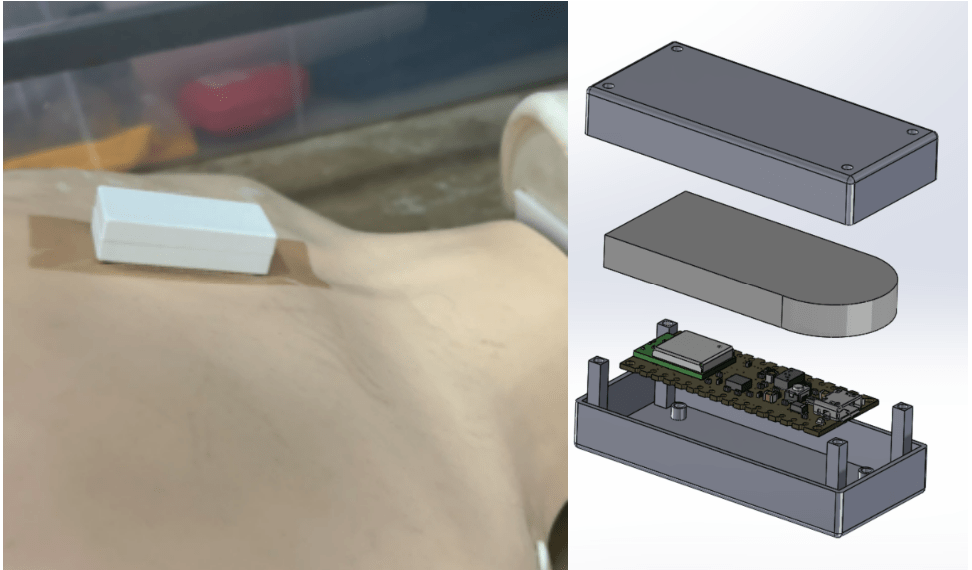Project Description:
Aspiration is a medical condition in which food or liquid unintentionally enters the lungs or airway instead of the esophagus, often causing serious health issues including choking, pneumonia, and chronic lung scarring. A patient can reduce their risk of aspiration by maintaining an upright position during ingestion and rest, but this remains a challenge for many patients experiencing cognitive impairment or limited mobility. The current standard of care requires frequent monitoring from medical professionals or caretakers, but this method is often inadequate given the insufficient patient-to-nurse ratio. To address this unmet clinical need, we developed a wearable, disposable, Bluetooth-compatible device to (1) continuously monitor a patient’s torso angle and (2) notify caretakers when a patient reclines beyond a critical threshold angle. This device can comfortably adhere to the sternum, measure the chest angle using an enclosed accelerometer, store readings in a user-friendly app, and audibly alert the caregiver. Notably, our design is adaptable for both hospital and home settings, offering a non-invasive, sustainable, and accessible solution that accommodates diverse body types. Through continuous, real-time posture monitoring, this device can be implemented in various settings to improve aspiration prevention and patient outcomes.
